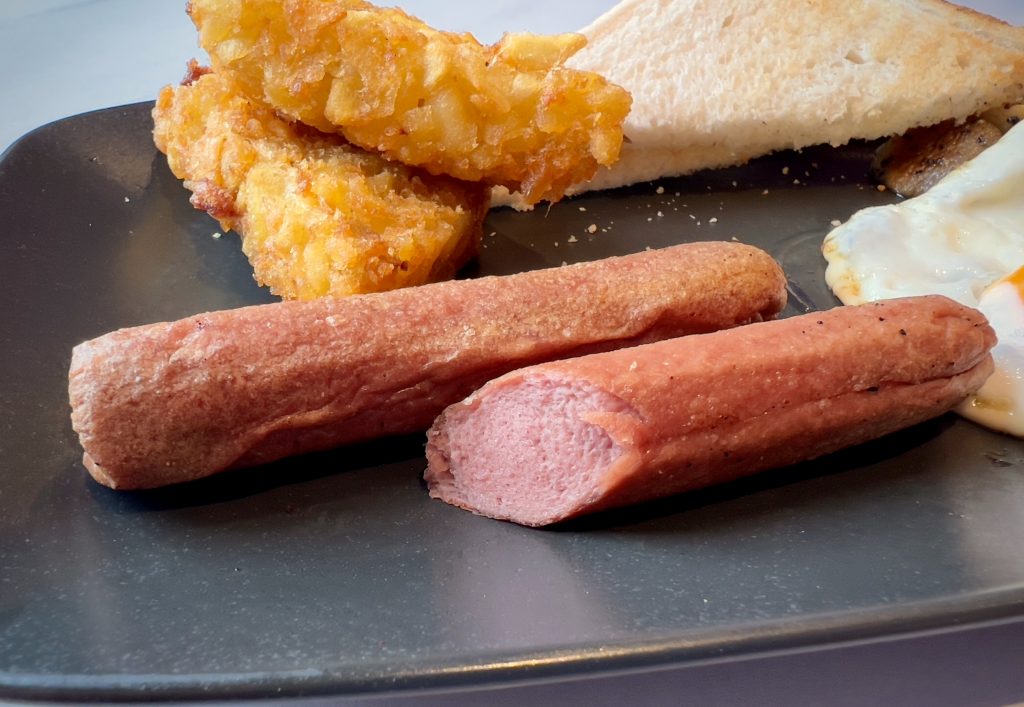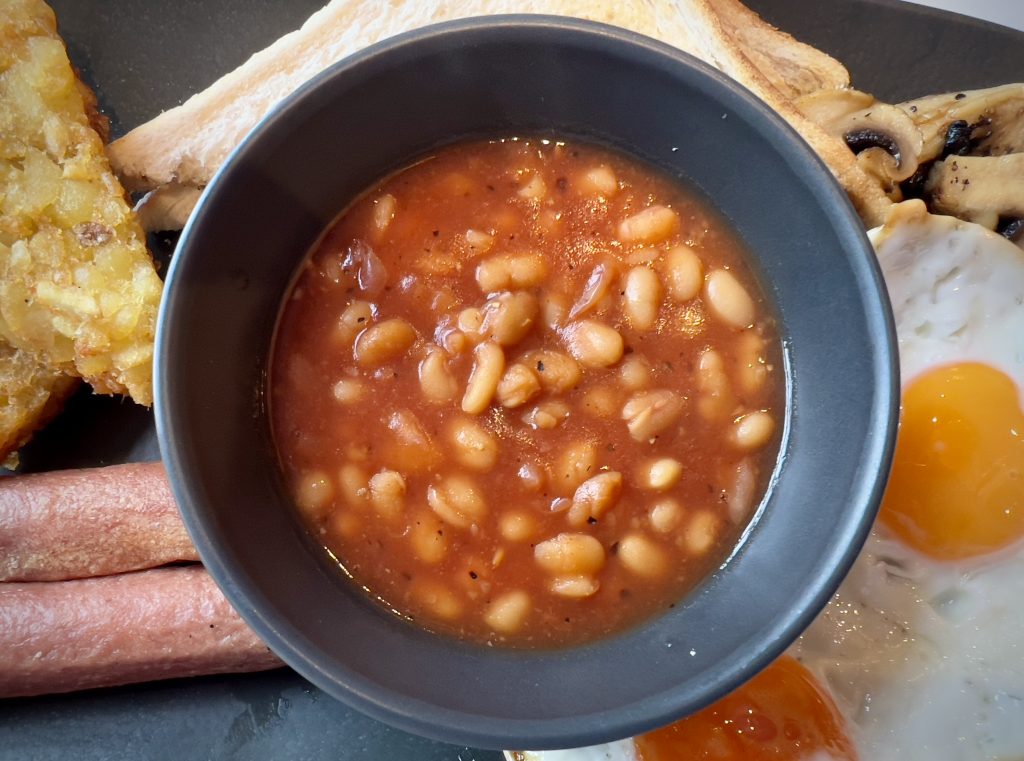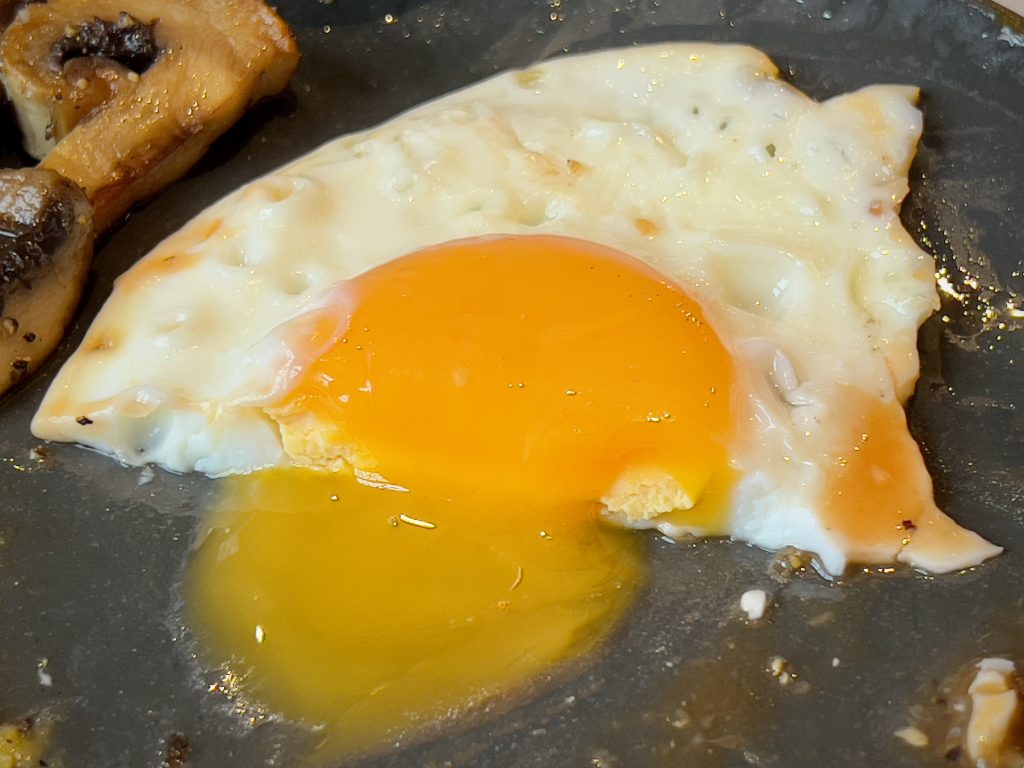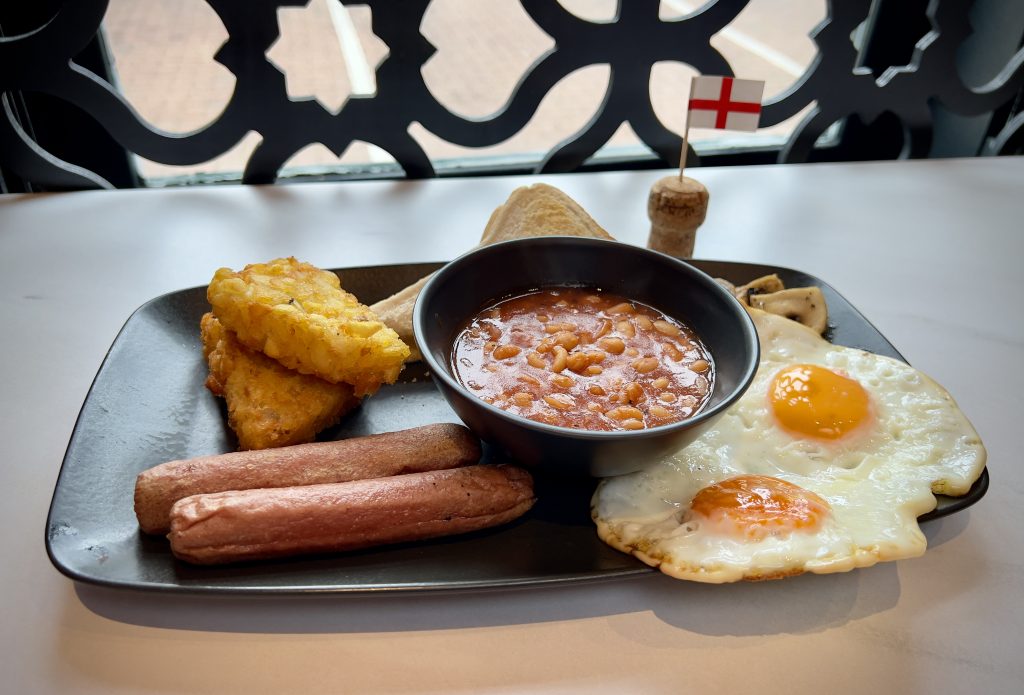Ah, the Full English Breakfast. I must admit, I’d been holding out on reviewing this dish until I found it in the unlikeliest of places. My local pub simply won’t do you see, nor the greasy spoon down the road. Sherwood’s Tipu Sultan on the other hand, is just the place.
It’s a fine dining Indian and Pakistani restaurant, specialising in the likes of curries and biryanis. Vast chandeliers hang from the ceilings, decadent decorations embellish every surface; indeed, they might just have the flashiest bathrooms in all of Nottingham. Certainly not an eatery where’d you’d expect to find fried eggs, bacon and sausages.
Especially not the last two mind you, as Tipu Sultan follows the strict dietary restrictions of Islamic faith. Pork is considered haram, or forbidden, along with alcohol, meaning neither are served on the premises. When it came to my breakfast, that meant chicken sausages and an absence of bacon. It’s a valid excuse of course, but unfortunately one that meant Tipu Sultan’s full English wasn’t off to the best of starts.

Colloquially referred to as a “fry-up”, the full English breakfast is as steeped in history as any other traditional dish (it’s worth noting that the other nations of Great Britain also have their own breakfast traditions). The full English’s story is closely tied with the changing economics of England over time, and begins in the 14th and 15th centuries, where members of the Landed Gentry would breakfast before a hunt. These wealthy landowners often took the meal as an opportunity to show off their culinary goods, and lavish spreads of local meats and home-grown vegetables would feature accordingly.
This practice continued into the Victorian era, where the wealth of the Industrial Revolution meant the upper class began preparing luxurious breakfasts in a similar way, often in an effort to imitate the showy actions of the gentry.
With the arrival of the Edwardian era however, came a filtering down of food traditions through the classes. In particular, the previously aristocratic habit of breakfasting rose massively in its popularity amongst the middle and emergent classes. Various cookbooks began writing entries on this mealtime, and the fry-up became one of the more ubiquitous dishes.

By the 1950s, it had become synonymous with the working class of England and a staple in so-called ‘greasy spoon’ cafe’s. Much simpler ingredients now comprised the full English: bacon, eggs, pork sausages and baked beans could all be easily obtained and prepared, along with fried bread, toast, tomatoes, mushrooms and black pudding.
Only half of which appeared on my plate here. And for what I did have, it was clear that more obtaining had taken place than preparing.
Slices of store-bought, white bread were used for the toast, lacking in taste, texture and nutrients alike. The hash browns (a modern addition to the fry-up, and in my opinion a pointless one) were clearly frozen and reheated in the oven, and the beans had come straight out of a Heinz can.
Whilst I wasn’t a fan of the first two – the whole point of the full English is to let good quality, local ingredients shine – the fact that Heinz beans were used was actually less of a problem to me. Most English households would probably use this brand themselves, and its taste is what many have come to expect when served a fry-up in restaurants. What’s more, Tipu Sultan elevated it with a heavy dose of black pepper, an agreeable addition that brought a mild spiciness to the beans.
It would have been nice if the eggs had gotten the same treatment. Nicer too if they had been fried to crispy-edged perfection. But unfortunately, neither were the case. A sunny-side-up essential is a runny yolk though, and thankfully Tipu Sultan succeeded on that score.

By far the standout element of the meal was the mushrooms; sautéed with salt, pepper, and what seemed to be a little garlic powder, they offered nutty notes of flavour which paired beautifully with the beans. I could only have imagined what Tipu Sultan’s fried tomatoes would have tasted like, an omission from their fry-up that had me puzzled. I would have thought a Pakistani restaurant has access to quite a few.
The final thing to mention is the price, as £8.95 felt a touch high for me. Whilst a cup of tea was included, I’d have much rather gotten a more, ahem, full English breakfast.
Credit where credit’s due though, as putting a fry-up on the menu is a bold move for an establishment such as this. The dish has many components, all of which require a lot of attention to perfect. And when you regularly have the harshest critics eating it (the English general public that is), perfection is a necessary ingredient.
Tribudishional score: 3.5/10.
©The Tribudishional Food Blog


I wonder how much work goes into creating a website this excellent and educational. I’ve read a few really good things here, and it’s definitely worth saving for future visits.
Thank you so much, I’m glad you’re enjoying the blog. It is a lot of work, but work I love doing! More Tribudishional reviews are on their way!
very informative articles or reviews at this time.
Thank you, it’s great to hear that you find Tribudishional’s posts informative. There are many more on their way!